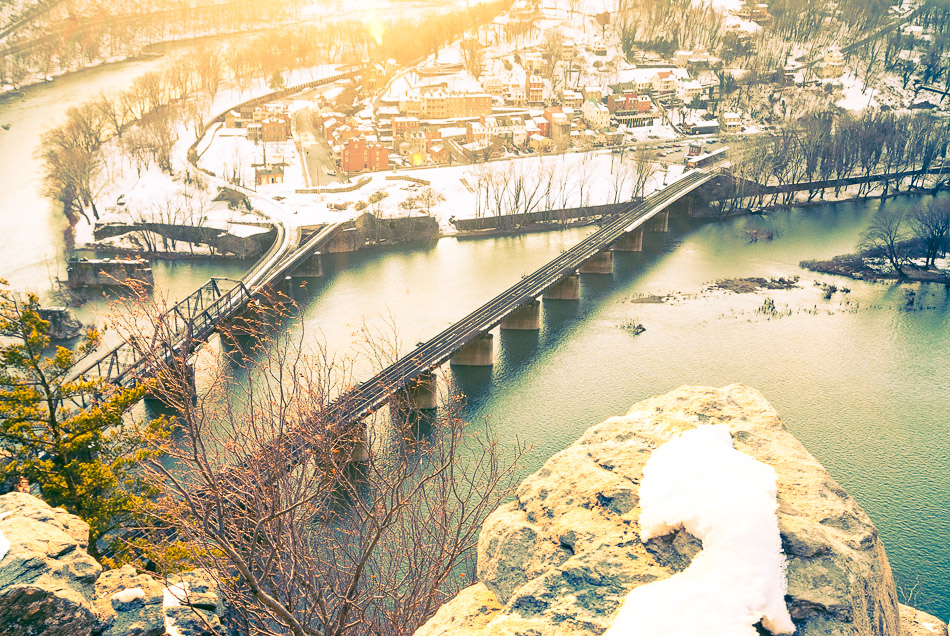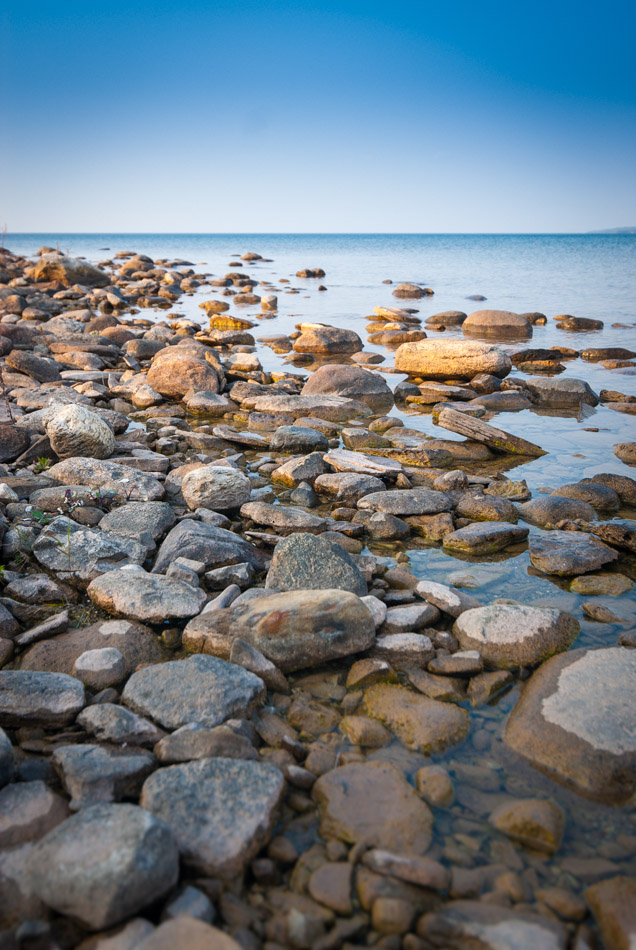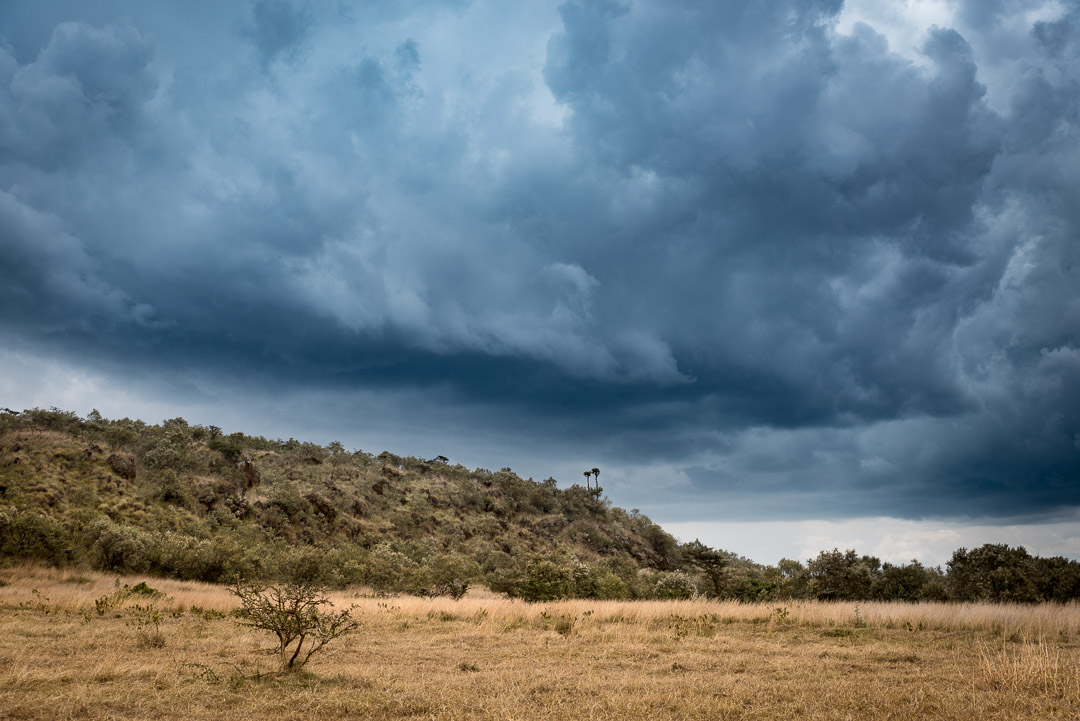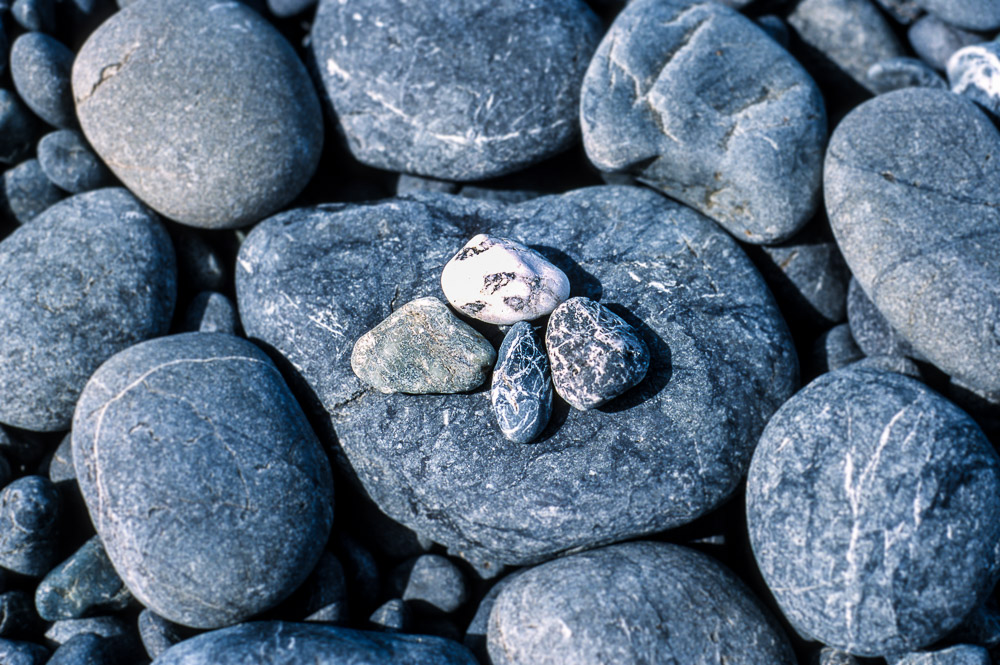Imlil, Morocco
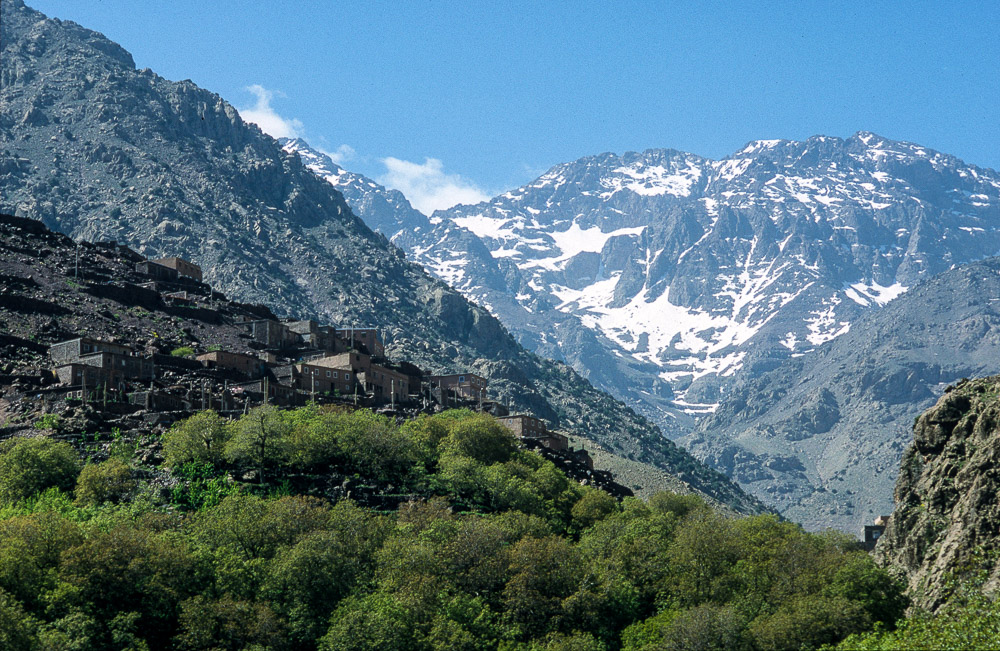
After the insanity of Marrakech, our first stop is the village of Imlil. Because, when in a hot, desert country, what better a thing to do than climb a mountain without any of the appropriate equipment? Jebel Toubkal, at 4165 m (13,665 ft), is the highest mountain in North Africa, replete with snow, hail, sleet, more snow and freezing temperatures — facts we simply choose to ignore and trudge ahead in our sandals.
Getting there is a struggle by Western standards of travel, yet it seems completely ordinary to the locals around us. From the taxi stand outside Bab er-Rob, one of the 18 gates into the city of Marrakesh, we wait for a shared van to Asni. And we wait. And wait. Schedules for shared transportation are fluid, with the driver delaying departure until every available seat is full, or in the case of a shared taxi, paid for. And like the food vendors, the drivers know how to make the sales pitch.
In total, the 60 km trip to Asni takes two and a half hours: an hour and a half of waiting and honking and driving laps around the taxi lot announcing the van’s destination in a loud, staccato “AsniAsniAsniAsniAsniAsniAsni!” until every seat (and even a place beside the door that isn’t really a seat) is filled, and an hour of actually driving.
Still 20 km from our ultimate destination of Imlil, the base for mountain excursions, our transportation options in the mountain village of Asni have narrowed. As the day winds down, all the taxis appear to be heading back toward Marrakesh rather than further into the mountains.Sitting on the ground at the side of a parking lot, we wait for cars to pass that might take us to Imlil. Literally a captive audience from the second our feet hit the ground in Asni, we are prime targets for every imaginable sales pitch, but when it’s clear we wanted only to go to Imlil, they give us some space. Mainly because they keep insisting there is no more service to Imlil. Transport can be arranged, one man says, but it will be expensive. How expensive? About $25 — more than five times the price we paid for the 60 km journey from Marrakesh. We stay put.
Ten minutes pass with no traffic to Imlil. We began to wonder if the locals are giving us the straight story and we do in fact need to jump on whatever we can find that’s headed our way. A man approaches with a duffel bag and says hello — he’s American. On “vacation” from his “post” in Casablanca, he had just come from the mountains. He appeared to speak flawless Arabic. How long had he been working in Morocco? He’s been “in country” a little over a year, using the term typically employed by military types. A short, well-built American, speaking Arabic with a curious duffel bag, “on vacation” from Casablanca. There is likely more to his story than we are going to find out. With a curt nod, he gets into a van headed for Marrakesh. But before he leaves, says that the word around the taxi lot was likely correct — we should take whatever we can find to Imlil.
An old man in a full, black robe approaches next. His hood is up and he looks different than the other Moroccan men we’ve encountered. He can arrange a ride, he says, and for a genuinely good price. “I am Berber people,” he explains with a forward hand gesture like he was coaxing the words out. “Berber people. Desert. Not like the others.”
On it goes, with the Berber man making his pitch that he is giving us the best price, something he is certain the others will not do. Yet as we wait, the Berber price drops. $25 becomes $20, which becomes $15 which becomes $10.
We wait for the punch line: his special offer. We say we’ll figure out our options, not knowing any better but wanting to sound convincing as if we actually have a clue now. “No, no taxi,” he countered. And on it goes, with the Berber man making his pitch that he is giving us the best price, something he is certain the others will not do. Yet as we wait, the Berber price drops. $25 becomes $20, which becomes $15 which becomes $10. We take it. A half hour later, our taxi drops us at the Imlil hotel we hope it will be empty. We are in luck.
The High Atlas mountain air is crisp and cool. By the time we’re settled in our room, it is almost dark but the silhouettes of distant mountains remain tangible. A stream flows by the terrace of the hotel where we eat a tajine dinner with an American couple from Chicago, about to begin their second year of Peace Corps service in Mauritania. Stuffed, content and exhausted from our first experience with the rigors of rural Moroccan travel, we crash. Tomorrow we climb.

